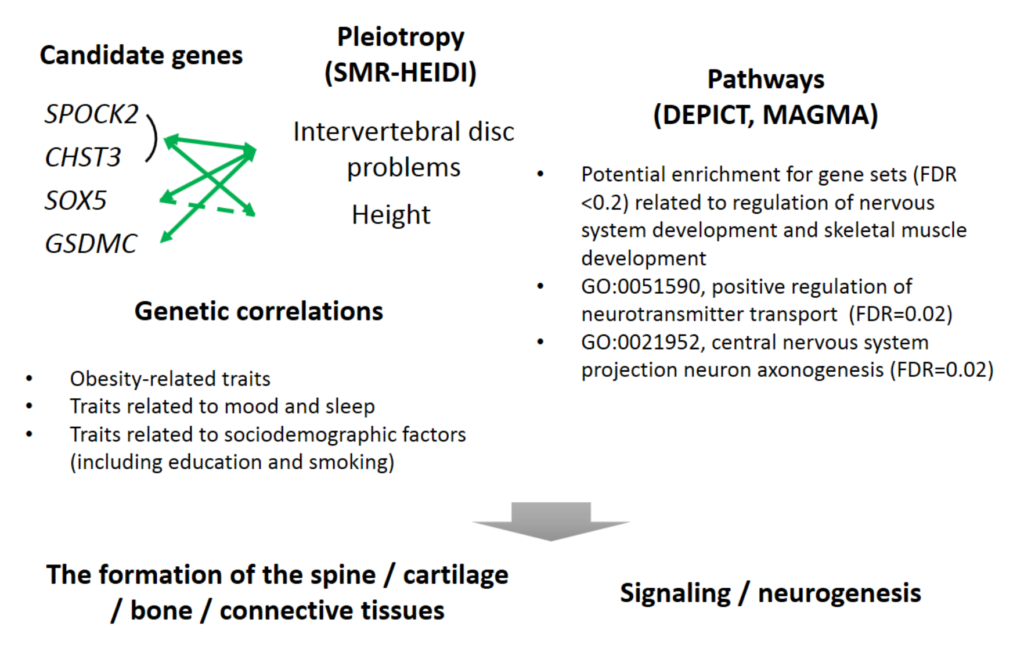Genomic approach to determine psychological and anatomic determinants of back pain

Back pain is the number one cause of years lived with disability worldwide and one of the most common reasons for health care visits in developed countries, yet surprisingly little is known regarding the biology underlying this symptom. In our previous study1, published in Sept 2018, we identified three novel genetic variants associated with chronic back pain using data from 158,000 people. We extended this work by studying back pain in 509,000 individuals. Results of our study2 have recently been published in PAIN, the journal of the International Association for the Study of Pain.
We identified independent genetic correlations between back pain and depression symptoms, neuroticism, sleep disturbance, overweight, and smoking. A significant enrichment for genes involved in the development of the central nervous system and skeletal tissue was found. The study of pleiotropy and genetic correlations, supported by pathway analysis, suggests at least two strong molecular axes of back pain genesis, one related to structural/anatomic factors such as intervertebral disk problems and anthropometrics; and another related to the psychological component of pain perception and pain processing.
These findings corroborate the current biopsychosocial model as a paradigm for back pain. Overall, the results demonstrate back pain to have an extremely complex genetic architecture that overlaps with the genetic predisposition to its biopsychosocial risk factors. The work sheds light on pathways of relevance in the prevention and management of back pain.
Supported by the EU-funded PAIN-OMICS project (grant agreement n. 602736), PolyOmica hosted the UK Biobank data used in this work and we provided computational and data management facilities. PolyOmica co-developed the GWASarchive platform that serves the summary-level data obtained in the study3. Our staff also contributed to the genome-wide association analyses and to the in-silico functional genomics analyses. The study was conducted in collaboration with the group of prof. Frances Williams (King’s College London, U.K.) and others.
The results of this and other ongoing genetic association studies will facilitate PolyOmica’s work aiming at the discovery of therapeutic intervention targets and therapeutics for musculoskeletal pain.
- 1.Suri P, Palmer MR, Tsepilov YA, et al. Genome-wide meta-analysis of 158,000 individuals of European ancestry identifies three loci associated with chronic back pain. Loos RJF, ed. PLoS Genet. September 2018:e1007601. doi:10.1371/journal.pgen.1007601
- 2.Freidin MB, Tsepilov YA, Palmer M, et al. Insight into the genetic architecture of back pain and its risk factors from a study of 509,000 individuals. PAIN. February 2019:1. doi:10.1097/j.pain.0000000000001514
- 3.Freidin MB, Tsepilov YA, Palmer M, et al. Genome-wide association summary statistics for back pain. July 2018. doi:10.5281/zenodo.1319332
No Comments